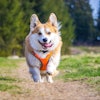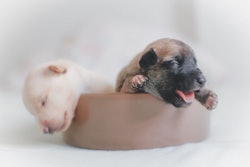
Like a phoenix, destruction can lead to rejuvenation and innovation. Creating new business models by breaking established norms became Bonin Bough’s specialty in his career, as he altered the trajectory of brands like Pepsi, Oreo, Honey Made and Stride Gum. In the opening keynote of Petfood Forum CONNECT, Bough told the story of a rainbow Oreo advertisement he worked on to honor Pride Day 2012.
“The place went crazy,” he said. “Oh my God…Oreos are gay! I get a phone call, senior leadership's like ‘what are you doing to Oreo?’ By Friday, it was being touted as one of the best marketing campaigns on the Facebook platform. Of course, senior leadership was like, ‘well we knew it was gonna be great from the moment we saw it.”
Pride kibble may never be a thing, but dog, cat and other pet food companies can apply the concept Bough called hackonomics to their brands. Hackonomics involves breaking an established business strategy, concept or model in order to improve it. Like a computer hacker, pet food executives may hack the system by using their tools and resources in unconventional ways to achieve advantages over competitors.
COVID-19 effects on established pet food business practices
Bough did most of his business hacking from inside companies, but the ongoing COVID-19 pandemic forced a dramatic breakdown of established norms from outside. Now pet food companies may have an opportunity to rethink their brands and boost engagement with smartphone-equipped consumers.
“Uniquely, we were broken without us having a break ourselves, and now we have to ask ourselves, how do we reinvent ourselves anew,” he said.
Especially after the COVID-19 pandemic disrupted pet food buying habits, pet food companies may have an opportunity to take advantage of new technologies to reach and retain customers. Online pet food sales rose in the early months of the pandemic, while brick-and-mortar pet specialty stores suffered. Cellular, online and digital commerce seems likely to continue growing in importance.
In response to a question, Bough presented five ways dog, cat and other pet food brands could break themselves and create their own future by hacking it.
1. Value – The economic repercussions of the pandemic remain. With many unemployed or otherwise worried about finances, pet food companies need to think about providing value to customers, he said.
“That value doesn't mean I have to sell more for less,” he said. “It could mean I can add value… Create greater value, so the consumer is buying something and getting ultimately more for it from a perception standpoint, not necessarily specifically from a from an actual product standpoint.”
2. Confidence – Like baby food and other consumables, pet food needs to be trustworthy. Pet owners must have confidence that the food is safe and nutritious.
3. At Home – After the initial jump in e-commerce sales during the early months of the pandemics, pet food brands now need to develop strategies on how to maintain that trajectory.
4. Digitalization – Online sources of information about pet food, e-commerce and direct-to-consumer sales were already growing before the pandemic. Digitalization will likely continue to grow in importance as the pandemic wears on, and in its aftermath.
“Text messaging and creating databases of consumers that you can build loyalty programs with, that's going to be a huge part of what the future,” he said. Making that information part of a loyalty program could help pet food companies.
5. Employees – Along with consumers, pet food companies and their suppliers need to keep employees in mind.
“Make sure that you keep the mental stability of your employees today,” he said. “Make sure that you're taking care of the total employee, and not just asking for more hours on Zoom.”
Adapting to the COVID-19 pandemic taught pet food companies that they could adapt rapidly to unprecedented changes. The reflexes and skills honed by the pandemic may apply to other changes to a company, including radical hacking.
“Keep that muscle memory that any change you want to make you can do it much faster than you ever gave yourself credit for,” Bough said. “I believe that that pace is what's going to unlock growth.”

















